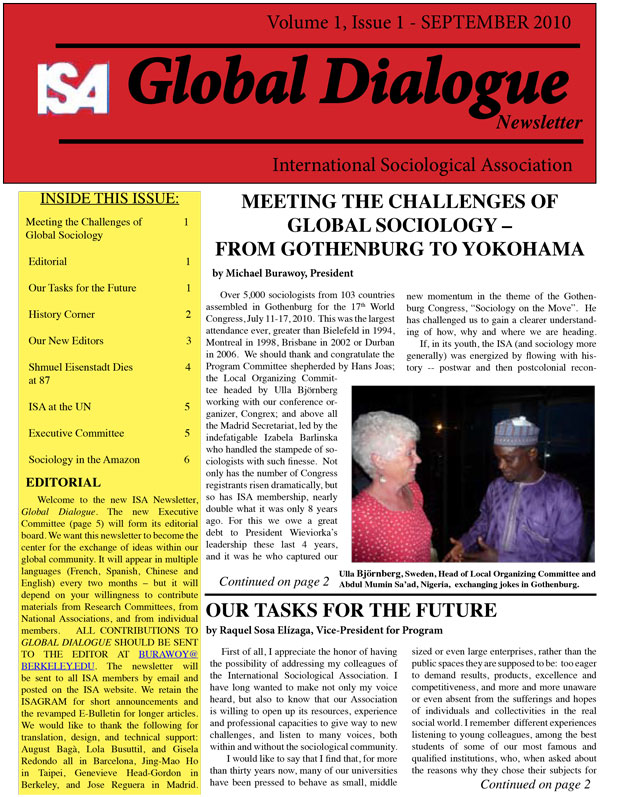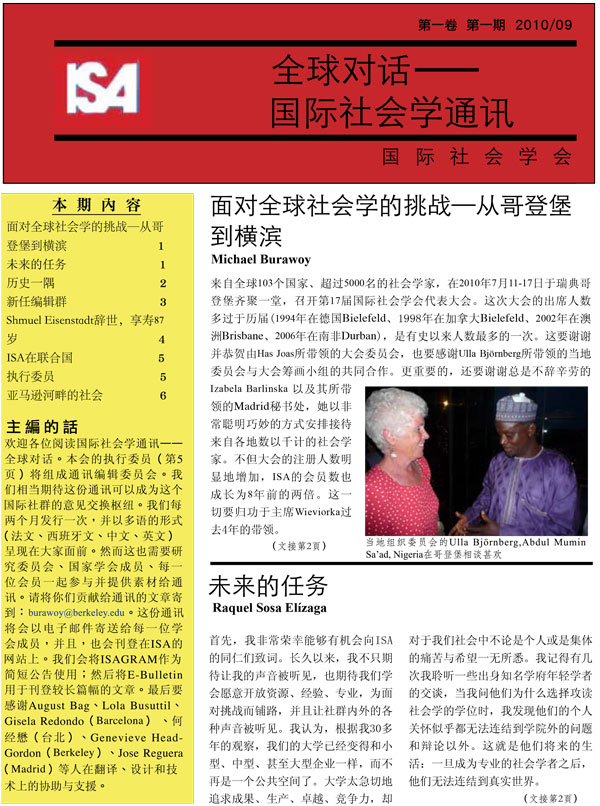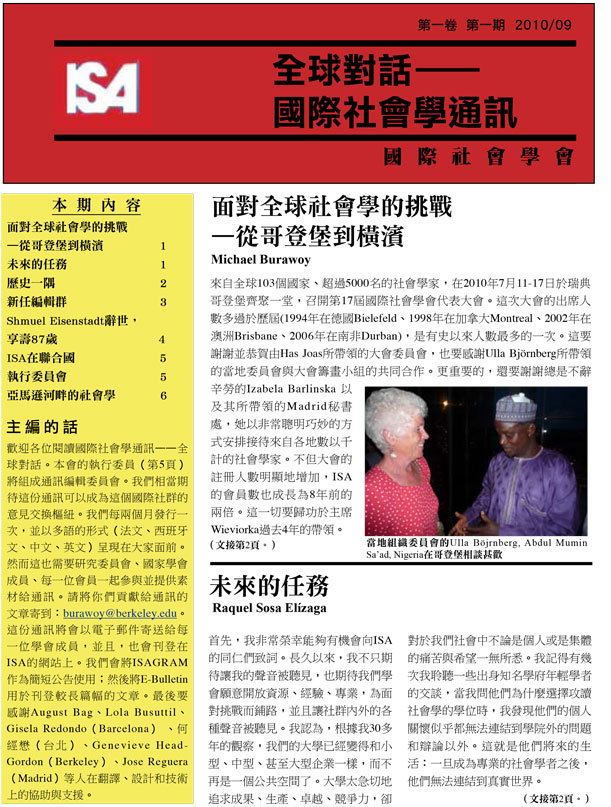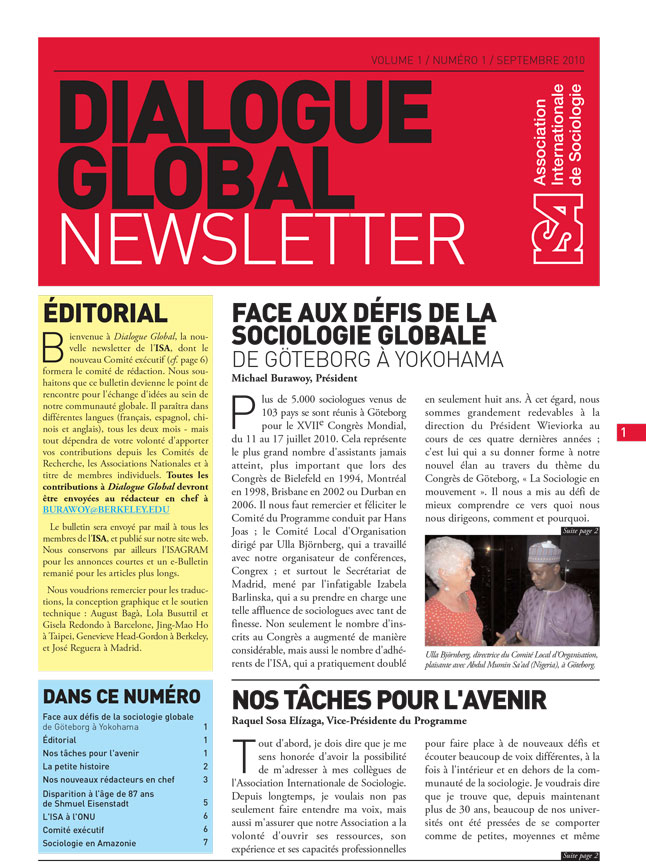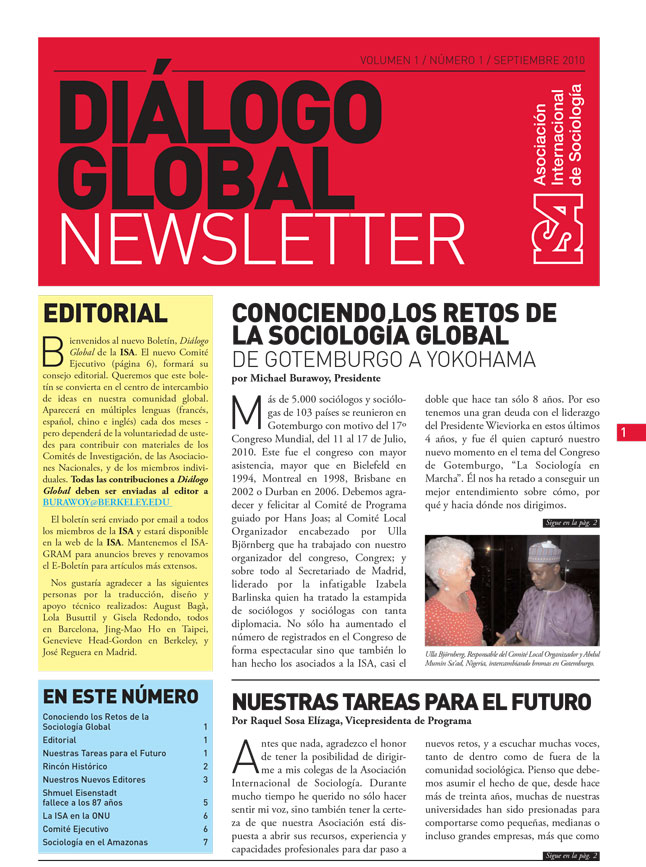Our Tasks for the Future
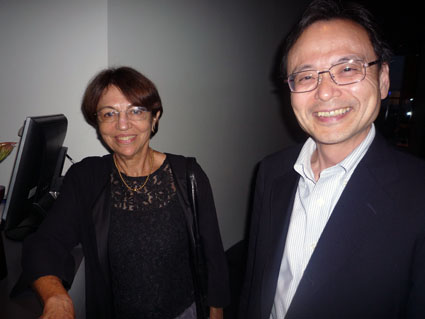
September 24, 2010
First of all, I appreciate the honor of having the possibility of addressing my colleagues of the International Sociological Association. I have long wanted to make not only my voice heard, but also to know that our Association is willing to open up its resources, experience and professional capacities to give way to new challenges, and listen to many voices, both within and without the sociological community.
I would like to say that I find that, for more than thirty years now, many of our universities have been pressed to behave as small, middle sized or even large enterprises, rather than the public spaces they are supposed to be: too eager to demand results, products, excellence and competitiveness, and more and more unaware or even absent from the sufferings and hopes of individuals and collectivities in the real social world. I remember different experiences listening to young colleagues, among the best students of some of our most famous and qualified institutions, who, when asked about the reasons why they chose their subjects for doing research to obtain a degree, had difficulties in associating their concerns with questions beyond academic and conceptual debates, that is, with the life they will have as soon as they present themselves as professionals of the social sciences in whatever they do in the real world. This is the reason why I believe it is so urgent that we all move our minds in different directions, where other voices can be heard, and where whatever knowledge we acquire has a meaning and contributes to the understanding and tackling social problems in a better way. This is what I will try to do in the next four years, together with the great team we have formed with colleagues of the Executive Committee, Michael Burawoy and all of you, wherever you are and whatever you are researching now. So I would like to share my thoughts on the foundations of our common project.
1. I think that we cannot suppose, let alone accept, that there are such things as universal truths, valid for all, at all times, or behave as if our modest contributions were part of those truths. And I also think that it is extremely important that we start considering whatever we study more in terms of posing questions, than in asserting, pretending to define, or presumptuously believing that what we learn and discuss at our universities is what the rest of the world should accept as facts. So instead of using nouns to denote what we believe is true, we could start by problematizing, asking questions that lead us to deeper knowledge, in a more modest and comprehensive way. I learned a lot about this from my Latin American teachers: Sergio Bagú, Aníbal Quijano, Hugo Zemelman.
2. We spend and have spent a lot of time talking about interdisciplinarity, but we have not yet had the courage of actually opening up our knowledge, our academic activity, our social sciences. Immanuel Wallerstein made an extraordinary effort to sensitize us by recognizing that sociologists and other social scientists do not have all the explanations of what is happening to and in our world, but I believe we still have a long way to go. We do not listen to historians, anthropologists, economists (they are not invited to participate in our debates in the ISA), but even less do we listen to society. And I urgently think we have to be able to recognize different sources of knowledge, both from academic and non-academic sources, and incorporate them in our reflections, as I also believe that we have to start treating society as a subject with its own life, made up of human beings who know what they want and what they do not want, have wills, fears, experiences, memories, but also have hopes, love and beauty in their lives, and do not just behave as the objects of study to which we have tried to consign them. If we truly dare to open up the debate about inter and transdisciplinarity, sociology will surely find its place together with other professions, social organizations and institutions. We do have to consider the need to listen to different voices as part of the responsibilities we take on with our schooling and professional work.
3. I also believe – sorry for using this word so many times, I should maybe speak of hope -- that we will be able to promote true intellectual, sociological imagination, as C.Wright Mills expected, by undertaking the collective exercise of asking ourselves and others not only what we know, but whether it means something to our society, and whether it might help to make peoples´ lives any better. And in doing so, we will surely find significant problems not sufficiently analyzed; emerging or unseen social problems; urgent questions to be faced; risks to be prevented; conflicts to be faced differently. And so we might be able to synthesize our findings by answering simple questions as: What is changing? Who is changing? How far are we from what we hoped for? What can “better living” mean in our world today? And how do we get closer to it? Is there something we can do to reach some collective state of happiness? Or at least, is there something we can do to prevent major disasters that threaten our life and everybody else´s life on earth?
4. I read that we have had more than five thousand colleagues in our recent Congress in Gothenburg. I do not think that each of us had the opportunity to speak or listen to more than forty or fifty (except for the candidates to some Executive office, of course; and the organizers, among whom we have our extraordinary Izabela and her team). But anyway, the truth is that we have to find ways that get us much further. We do have to propose better ways of expressing our views of the world; broaden our cultural horizons through the languages we speak and understand (isn´t there available technology that would break the monopoly of the English language?); improving and increasing our means of collecting and sharing information; working in real collectivities and not only presenting results in front of audiences; changing the ways of making our work known, both inside and outside sociological communities in the world. I deeply agree with Michael Burawoy that it is necessary to experience new types of electronic communications, but I still think we have to do more to participate creatively in today´s lively, diverse, contradictory, anxious and happy debate about how to live and enjoy and even suffer in a more dignified way in our world today.
5. Finally, I have to say that I couldn't agree more with Michael's proposal for the theme of our next Congress, Facing an Unequal World: Challenges for a Global Sociology. 2015 is the deadline for the achievement of the UN Millenium Development Goals, adopted 10 years ago. Our world is still quite far from them, but we have a great job ahead if we ask ourselves what we think we know, what we see, what we haven't been able to see and what societies expect us to see and do about the present state of inequality today. Michael has already begun to think about some of the sociological challenges that inequality poses: exclusion, different forms of power and violence, destruction of the environment, privatization of knowledge. I would add: threats against diversity and tolerance; meanings of experience, memory, identity; the presence of colonialism and the coloniality of knowledge and power (as Samir Amin, Edgardo Lander, Aimée Césaire and many others have phrased it), but also, together with Ernst Bloch, the Principles of Hope. I am sure that, if we start from today, we will have plenty of time to work in our RCs, national and regional associations, through forums and workshops, electronic bulletins and whatever other means we can think of to let everybody´s voice be heard about how sociology can contribute to face a significant number of urgent social questions in our unequal world of today. Thank you all.
Raquel Sosa Elízaga, ISA Vice-President for Program

